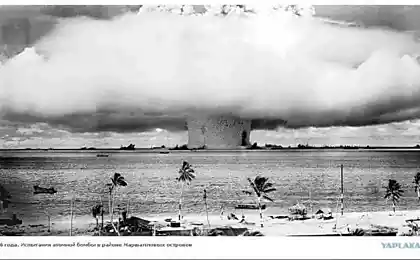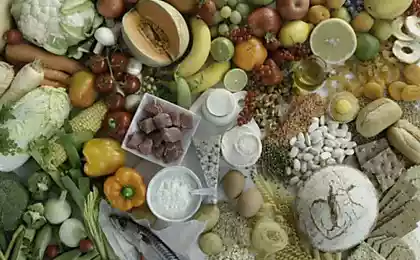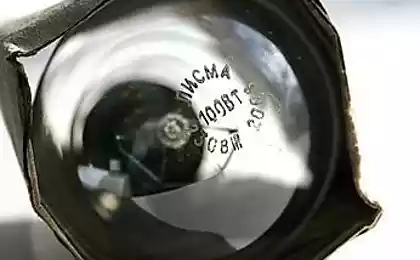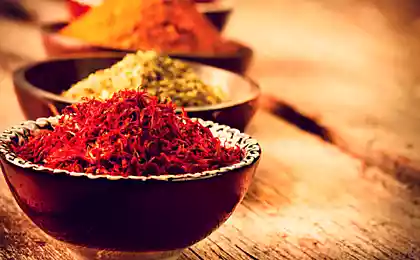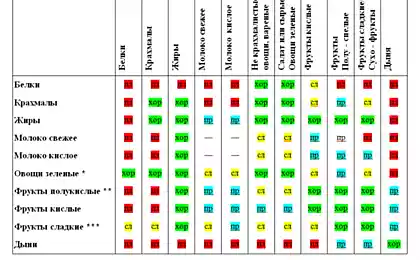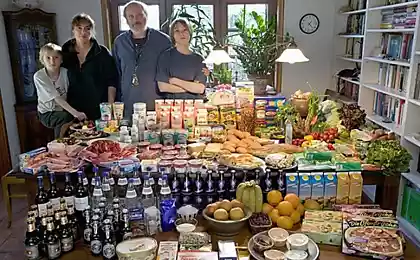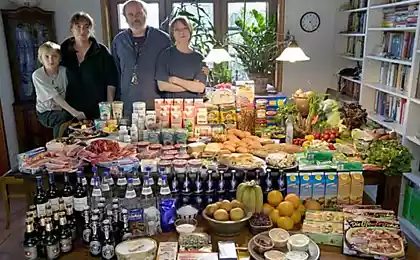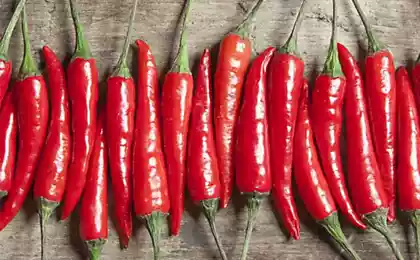1012
Products that are allowed in the United States but banned in other countries
It has recently become popular to adhere to proper nutrition, that is to eat only healthy, nutritious foods. Unscrupulous manufacturers take advantage of this and try by all means, in particular by means of active advertising, to push the market supposedly "natural, healthy and safe" products. This problem is widespread, especially in the United States, where very often the Office of FDA Food and Drug Administration approves the use in the production of popular food ingredients that are hardly harmless. And if you came to rest on the May holidays somewhere where tasty food, go anywhere, but not in the United States. It is not surprising that many of the products that are permitted in the United States, other countries is prohibited by law. Salmon grown on fish farms - is banned in New Zealand and Australia
Most people do not realize that the fish we buy in the store are usually grown artificially in special circumstances. Salmon, farmed, as well as animal feeds food to which harmful chemicals added to stimulate its growth, weight gain and the "quality". Vivid orange-red color of the flesh of wild salmon due to the presence in the diet of natural carotenoids. Salmon is grown in artificial conditions, fed mainly genetically modified varieties of crops, plus antibiotics and other drugs, as well as chemicals that pose a threat to human health.
Due to such a rich supply of chemicals fish feed pulp acquires a gray color, and in order to give it an unnatural pinkish tint is used another additive known as synthetic astaxanthin, which is derived from petrochemical feedstocks. Synthetic astaxanthin, according to several studies, is a person a number of serious eye diseases.
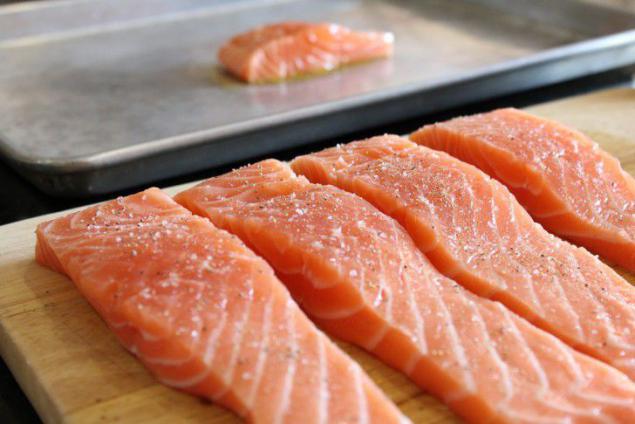
Synthetic food dyes, as well as products containing them, are banned in Norway and Austria. The European Union requires the availability of food coloring to indicate on the packaging.
The product is well-known company Kraft Foods Inc. called «Mac & Cheese» (macaroni and cheese) surely there is in the house of every American, and not only. But few know that it contains a food color as E110, which, according to studies, can cause allergies in children, and excessive activity. Food colorings such as E132 (indigo), E133 (triarylmethane dye), E110 (Yellow "sunset») E102 (tartrazine) and E129 (red charming AU) can be found in confectionery, medicine, sports drinks, soft drinks, pet food, cheese and baby food. These substances are banned on the grounds that, according to studies, are toxic and hazardous to health, but also have a negative impact on children's behavior. Center for the use of science in the public interest, he said that some food dyes can cause a variety of diseases, including cancer.
Countries that have imposed a ban on the synthetic food additives and dyes, Kraft offers an alternative: «Mac & Cheese» with natural food dyes.
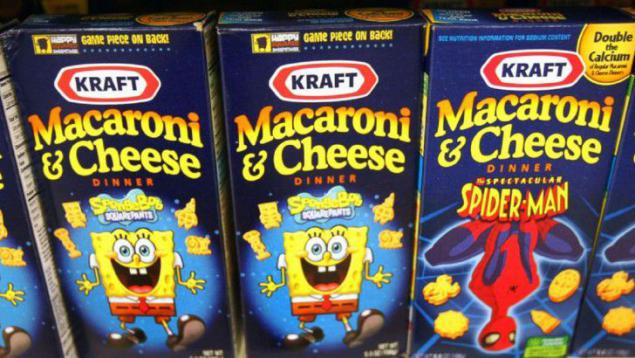
Potassium bromate - banned in the EU, Canada and several other countries
Potassium bromate is contained in buns for hamburgers and hot dogs, pita bread, tortillas, crackers, bagels, and others. Potassium bromate test gives a beautiful white color, firmness and elasticity, allowing you to reduce the baking time and, consequently, production costs. However, studies have shown that potassium bromate can cause abnormalities in the kidney, thyroid, and nervous system disorders, as well as discomfort in the gastrointestinal tract and serious disease such as cancer.
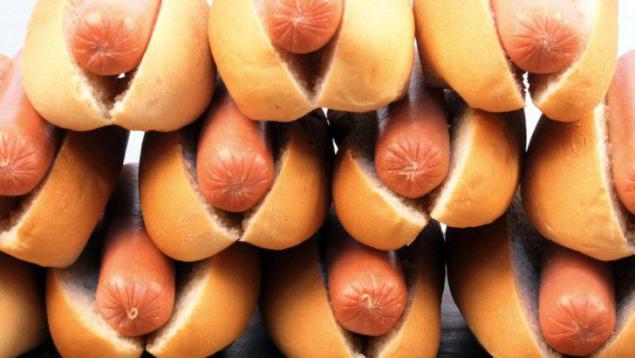
The synthetic fat substitute olestra (or Olean) - banned in the UK and Canada
Olestra (or olean) - a synthetic substitute fat that contains no cholesterol and has zero calories; It is used as a food additive in the production of all your favorite chips and French fries. American magazine «Time» Olean included in the list of the 50 worst inventions of mankind, although little has changed. Company for the production of food is not going to abandon the use of this ingredient, because they make millions of dollars.
Scientists at Purdue University conducted a study which found that eating foods containing Olean, leads to weight gain, causes diarrhea, cramps and leaky gut syndrome. Olean also prevents the absorption of fat-soluble vitamins A, D, E, and K.
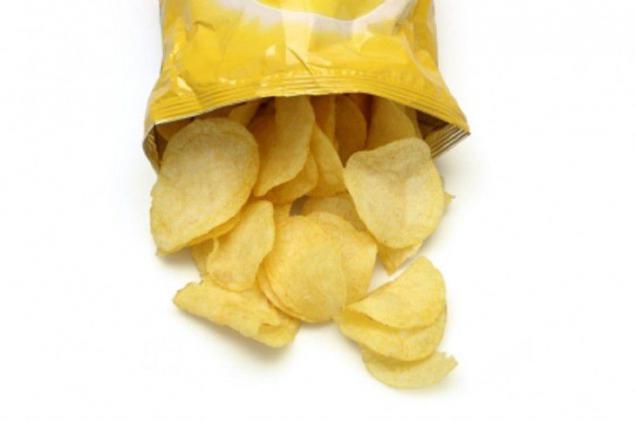
Brominated vegetable oil (BRM) - banned in more than 100 countries
Brominated vegetable oil obtained by extraction of oil from soybeans and corn, or the addition of a chemical element bromine. BIS is a prohibited substance, as a pair of bromine contained in it, are corrosive and toxic.
Bromine can also be found in pesticides, plastics, bakery products, soft drinks, toothpaste, mouthwash, hair dyes, dye fabric, automobiles, flame retardants and others. Studies show, bromine has a negative effect on the central nervous system and the endocrine system, which in turn leads to abdominal pain, fatigue, skin problems (acne, for example), loss of appetite, a metallic taste in the mouth, and even cardiac arrhythmia.
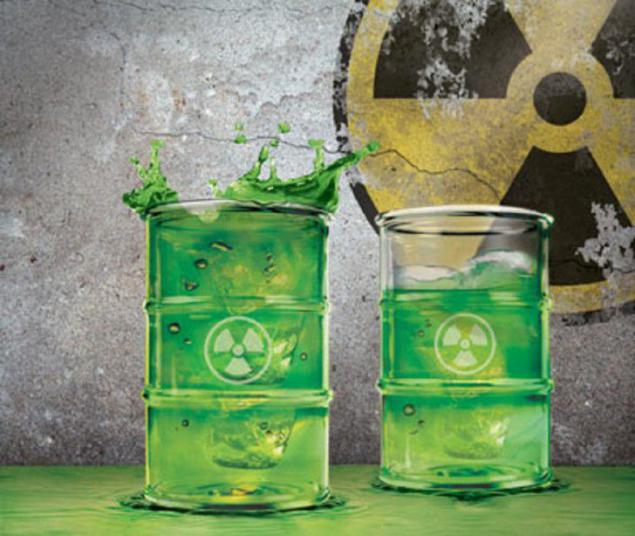
Butylhydroxyanisole (E320) and butylhydroxytoluene (E321) (preservatives) - banned in Japan and some EU countries
These preservatives are contained in the flakes, chewing gum, butter, mixed nuts, meat, dehydrated potatoes and beer. In America, California - the only state, which, together with the National Institute of Health, acknowledges that butylhydroxyanisole (E320) is a carcinogenic agent. According to the report of the National Toxicology Program (2011), butylhydroxyanisole can cause allergic reactions and excessive activity, and therefore represents a great danger to human health.
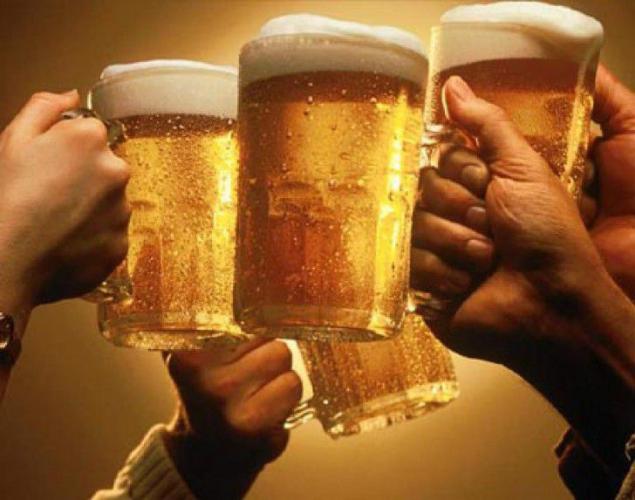
Synthetic hormones (growth hormone recombinant bovine) - banned in the European Union, Australia, Canada, Israel and New Zealand
Synthetic hormones often found in dairy products. In order to increase milk production by about 10%, farmers do cows injection of genetically modified growth hormone. The problem is that the cows who received at least one injection, become lethargic, inactive, and even futile. Have you ever heard of IGF-1 (insulin-like growth factor-1)? This protein is part of the recombinant growth hormone in cattle; entering the human body together with milk, it causes cancer of the breast, colon and prostate.
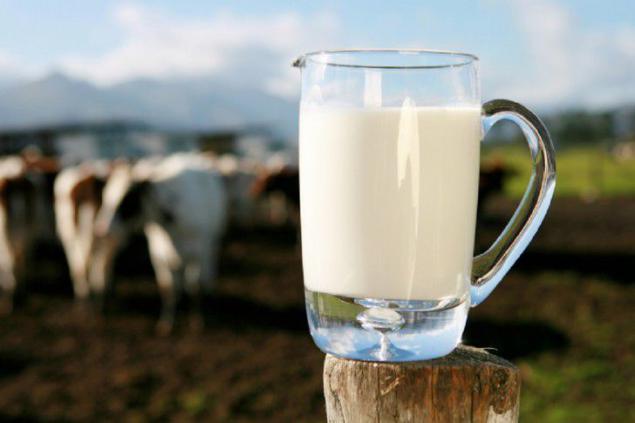
Azodicarbonamide - banned in Singapore, Australia, the UK and other European countries
When the lazy cook, to help us come the sandwiches, the undisputed main ingredient acts sdobny fresh bread and frozen ready meals. But few know that these products are artificially bleached.
In America, azodicarbonamide (food additive that is used as a bleaching and oxidizing agent to improve the quality and properties of flour and dough) considered absolutely safe ingredient, but in Singapore believe otherwise. If you are in Singapore ulichat that in their products you are using this supplement, you face 15 years in prison or a fine of $ 500, 000.
Azodicarbonamide is also used for making mats for fitness and soles of tennis shoes.

Arsenic - banned in the European Union since 1999
Office of FDA Food and Drug Administration allows the use of arsenic as a feed supplement for poultry; it stimulates growth, improves the performance and ... cause pigmentation disorders. When you buy a chicken, for example, and see in the carcass protruding blood vessels pink, you know that it is not a sign of fresh meat, poultry feeding and the consequences of arsenic. Office of US Environmental Protection Agency classifies inorganic arsenic as a "human carcinogen."

Ractopamine - banned in more than 160 countries, and even in Russia and China
Ractopamine - a substance which stimulates protein synthesis, and is used as a feed supplement for increasing muscle growth in pigs, cattle and poultry. In the US, this drug is most prevalent: Currently, it is used by 45% of pig farms, 30% of farms breeding cattle and an unknown percentage of poultry farms. Ractopamine administered to animals immediately prior to slaughter. According to veterinarian Michael Fox, the meat that reaches the shelves, contain 20% of the drug.
In February 2013, Russia imposed a ban on imports of American meat, as long as the US does not agree to certify it for lack of ractopamine.
Ractopamine, according to experts, causes hyperactivity, behavioral changes and abnormalities of chromosomes.
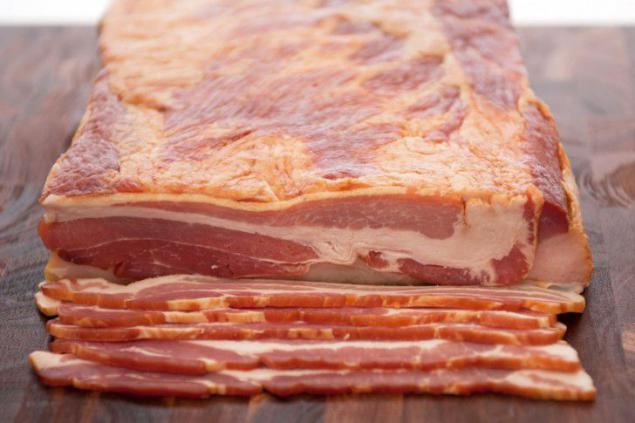
Source: muz4in.net
Most people do not realize that the fish we buy in the store are usually grown artificially in special circumstances. Salmon, farmed, as well as animal feeds food to which harmful chemicals added to stimulate its growth, weight gain and the "quality". Vivid orange-red color of the flesh of wild salmon due to the presence in the diet of natural carotenoids. Salmon is grown in artificial conditions, fed mainly genetically modified varieties of crops, plus antibiotics and other drugs, as well as chemicals that pose a threat to human health.
Due to such a rich supply of chemicals fish feed pulp acquires a gray color, and in order to give it an unnatural pinkish tint is used another additive known as synthetic astaxanthin, which is derived from petrochemical feedstocks. Synthetic astaxanthin, according to several studies, is a person a number of serious eye diseases.

Synthetic food dyes, as well as products containing them, are banned in Norway and Austria. The European Union requires the availability of food coloring to indicate on the packaging.
The product is well-known company Kraft Foods Inc. called «Mac & Cheese» (macaroni and cheese) surely there is in the house of every American, and not only. But few know that it contains a food color as E110, which, according to studies, can cause allergies in children, and excessive activity. Food colorings such as E132 (indigo), E133 (triarylmethane dye), E110 (Yellow "sunset») E102 (tartrazine) and E129 (red charming AU) can be found in confectionery, medicine, sports drinks, soft drinks, pet food, cheese and baby food. These substances are banned on the grounds that, according to studies, are toxic and hazardous to health, but also have a negative impact on children's behavior. Center for the use of science in the public interest, he said that some food dyes can cause a variety of diseases, including cancer.
Countries that have imposed a ban on the synthetic food additives and dyes, Kraft offers an alternative: «Mac & Cheese» with natural food dyes.

Potassium bromate - banned in the EU, Canada and several other countries
Potassium bromate is contained in buns for hamburgers and hot dogs, pita bread, tortillas, crackers, bagels, and others. Potassium bromate test gives a beautiful white color, firmness and elasticity, allowing you to reduce the baking time and, consequently, production costs. However, studies have shown that potassium bromate can cause abnormalities in the kidney, thyroid, and nervous system disorders, as well as discomfort in the gastrointestinal tract and serious disease such as cancer.

The synthetic fat substitute olestra (or Olean) - banned in the UK and Canada
Olestra (or olean) - a synthetic substitute fat that contains no cholesterol and has zero calories; It is used as a food additive in the production of all your favorite chips and French fries. American magazine «Time» Olean included in the list of the 50 worst inventions of mankind, although little has changed. Company for the production of food is not going to abandon the use of this ingredient, because they make millions of dollars.
Scientists at Purdue University conducted a study which found that eating foods containing Olean, leads to weight gain, causes diarrhea, cramps and leaky gut syndrome. Olean also prevents the absorption of fat-soluble vitamins A, D, E, and K.

Brominated vegetable oil (BRM) - banned in more than 100 countries
Brominated vegetable oil obtained by extraction of oil from soybeans and corn, or the addition of a chemical element bromine. BIS is a prohibited substance, as a pair of bromine contained in it, are corrosive and toxic.
Bromine can also be found in pesticides, plastics, bakery products, soft drinks, toothpaste, mouthwash, hair dyes, dye fabric, automobiles, flame retardants and others. Studies show, bromine has a negative effect on the central nervous system and the endocrine system, which in turn leads to abdominal pain, fatigue, skin problems (acne, for example), loss of appetite, a metallic taste in the mouth, and even cardiac arrhythmia.

Butylhydroxyanisole (E320) and butylhydroxytoluene (E321) (preservatives) - banned in Japan and some EU countries
These preservatives are contained in the flakes, chewing gum, butter, mixed nuts, meat, dehydrated potatoes and beer. In America, California - the only state, which, together with the National Institute of Health, acknowledges that butylhydroxyanisole (E320) is a carcinogenic agent. According to the report of the National Toxicology Program (2011), butylhydroxyanisole can cause allergic reactions and excessive activity, and therefore represents a great danger to human health.

Synthetic hormones (growth hormone recombinant bovine) - banned in the European Union, Australia, Canada, Israel and New Zealand
Synthetic hormones often found in dairy products. In order to increase milk production by about 10%, farmers do cows injection of genetically modified growth hormone. The problem is that the cows who received at least one injection, become lethargic, inactive, and even futile. Have you ever heard of IGF-1 (insulin-like growth factor-1)? This protein is part of the recombinant growth hormone in cattle; entering the human body together with milk, it causes cancer of the breast, colon and prostate.

Azodicarbonamide - banned in Singapore, Australia, the UK and other European countries
When the lazy cook, to help us come the sandwiches, the undisputed main ingredient acts sdobny fresh bread and frozen ready meals. But few know that these products are artificially bleached.
In America, azodicarbonamide (food additive that is used as a bleaching and oxidizing agent to improve the quality and properties of flour and dough) considered absolutely safe ingredient, but in Singapore believe otherwise. If you are in Singapore ulichat that in their products you are using this supplement, you face 15 years in prison or a fine of $ 500, 000.
Azodicarbonamide is also used for making mats for fitness and soles of tennis shoes.

Arsenic - banned in the European Union since 1999
Office of FDA Food and Drug Administration allows the use of arsenic as a feed supplement for poultry; it stimulates growth, improves the performance and ... cause pigmentation disorders. When you buy a chicken, for example, and see in the carcass protruding blood vessels pink, you know that it is not a sign of fresh meat, poultry feeding and the consequences of arsenic. Office of US Environmental Protection Agency classifies inorganic arsenic as a "human carcinogen."

Ractopamine - banned in more than 160 countries, and even in Russia and China
Ractopamine - a substance which stimulates protein synthesis, and is used as a feed supplement for increasing muscle growth in pigs, cattle and poultry. In the US, this drug is most prevalent: Currently, it is used by 45% of pig farms, 30% of farms breeding cattle and an unknown percentage of poultry farms. Ractopamine administered to animals immediately prior to slaughter. According to veterinarian Michael Fox, the meat that reaches the shelves, contain 20% of the drug.
In February 2013, Russia imposed a ban on imports of American meat, as long as the US does not agree to certify it for lack of ractopamine.
Ractopamine, according to experts, causes hyperactivity, behavioral changes and abnormalities of chromosomes.

Source: muz4in.net

